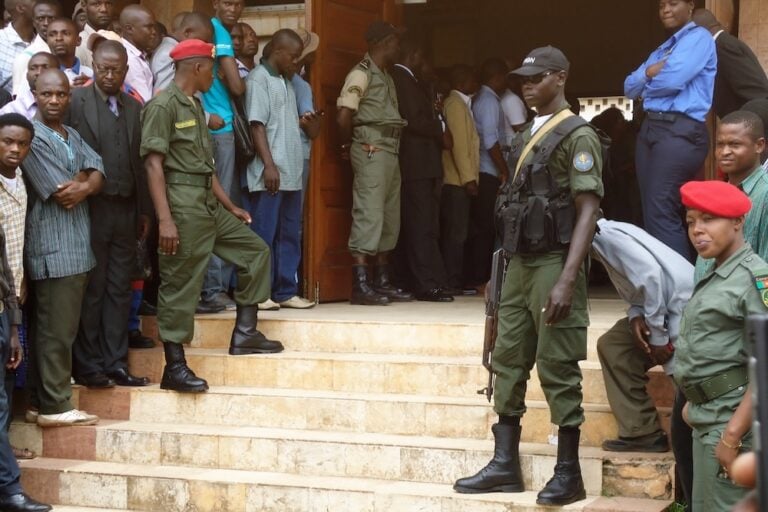(JED/IFEX) – On 19 February 2004, Health Minister Urbain Olanguena Awono opened an administrative and judicial inquiry into a news story that appeared in the private newspaper “Le Messager”. The minister was angered by the paper’s publication of an article in its 18 February edition (issue 1624), which reported on the administration of a vaccine […]
(JED/IFEX) – On 19 February 2004, Health Minister Urbain Olanguena Awono opened an administrative and judicial inquiry into a news story that appeared in the private newspaper “Le Messager”.
The minister was angered by the paper’s publication of an article in its 18 February edition (issue 1624), which reported on the administration of a vaccine of poor quality to individuals affected by the cholera epidemic that has struck Douala, Cameroon’s second largest city (240 kilometres south of Yaounde), in the last seven weeks.
According to “Le Messager”, close to 500 people were treated with the inadequate vaccine before the authorities recognised the problem and stopped dispensing it. The newspaper reported that the vaccine administered to Douala citizens had a whitish colour, whereas the standard cholera vaccine is a colourless and clear liquid. The vaccine also carried a fake label identifying it as a product of the French company Aventis Pasteur.
Marie Noëlle Guichi, the author of the controversial “Le Messager” article, told JED that “the information published in the newspaper is factual and verifiable. The health minister’s criticism is unwarranted and disingenuous.”
In its 20 February edition, “Le Messager” reported on the story again, saying, “Between 22 January and 3 February, entire families received a dose of this questionable product.”


